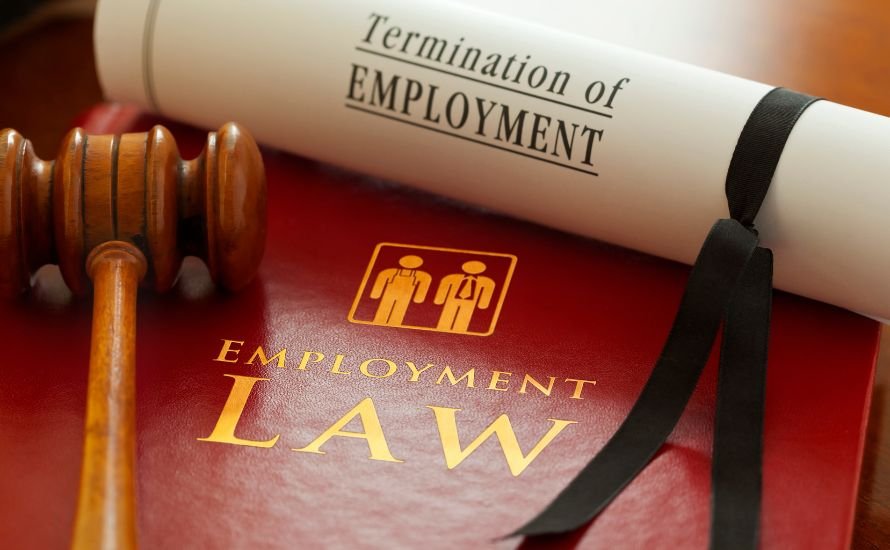In Canada, you are protected as an employee. You have rights that need to always be respected, some of the pieces of legal documents that better represent your rights are the Canadian Human Rights Act, the Employment Equity Act, and the Canada Employment Standards Code.
Similarly, employers are also protected to some degree as well. Companies and businesses have duties, responsibilities, and rights just the same as employees. One of the most common questions regarding employment law is regarding the notice period, whether be it from the employee quitting or the employer letting them go.
Always make sure that termination notices are written down and documented, regardless if they have been given by the employee or the employer. And consider having an employment lawyer Calgary with you throughout the process to ensure all guidelines are being met. Those trained professionals are amazing resources to keep your best interests in mind and your rights protected. They will save you time, stress, and in many situations money.
But when should you give your termination letter, or when should an employer give notice to an employee that they are being terminated? While the Government of Canada has laid out minimums, there are also different things that influence the notice period.
Let us look over those concepts and better understand them on the following topics.

Employment Standard Rules and Termination
According to the Employment Standard Rules of Canada, both the employee and the employers must give notice that they want to terminate their business together. The employer may end the employment by giving a termination notice, a termination pay, or a combination of both.
There are, however, a few important points. If the employee was at the company for 90 days or less, then no notice is required. That applies to both the employer and the employee. Some jobs also do not require termination notices, such as temporary and seasonal employment.
The period necessary for the notice of termination is commonly based on the period during which the employee has been working for the company. And employers may not require employees to use things such as their vacation during their notice unless both parties agree on it.
If the employee is giving notice because they want to terminate their relationship with their employer, then commonly they give a one-week notice period if they have been working between 90 days and 2 years. If the employee has been working for over 2 years, then a 2-week notice period is necessary. If there is another reason for the employee quitting such as danger to their health or safety, reduction of wage, or unforeseen circumstances that impede the employee to keep working then a notice is unnecessary.
It is when the employer needs to terminate its employee that matters become a little more complicated. As mentioned, the employer may give a termination notice, termination pay, or a combination of both. Similar to the employee, the notice needs to be given earlier depending on how long the employee has been working for the company.
- 1 week notice period if the employee has been working more than 90 days, but less than 2 years
- 2 weeks notice period if the employee has been working for 2 years or more, but less than 4 years.
- 4 weeks notice period if the employee has been working for 4 years or more, but less than 6 years.
- 5 weeks notice period if the employee has been working for 6 years or more, but less than 8 years.
- 6 weeks notice period if the employee has been working for 8 years or more, but less than 10 years.
- 8 weeks notice period for any employee working for over 10 years.
If, perchance, the employee which received a notice is still employed after the notice period ends, the termination notice becomes void.
Other Situations Which Impact Terminations
On the previous topic, we tackled what Canada’s Employment Standard Rules lays out as the framework for what is necessary as to what companies need to comply with when giving termination notices. But there are cases where there are other situations that influence this period notice, such as the position the employee held, the age of the employee, and how available is similar work for the employee.
More skilled and qualified work may require a longer notice period due to the more restrictive nature of the work. Similarly, if the employee is older the Court may decide that it can be much harder for them to find similar work and require a longer notice. There are cases in which the Court has decided that a more fair notice period is closer to almost two years when weighing all factors. Those situations are more common, however, when the employee has been with the company for a long time.
It is important to note as well that the employer cannot extend the notice period, the termination date must be written down and documented. As previously mentioned, if the employer keeps you employed past the termination date, the letter becomes null and void.
Another important aspect is that if you choose to quit before the termination date, you may not be eligible for employment insurance, but if you see yourself obliged to quit due to changes to your duties and responsibilities in this period you may have a case of constructive dismissal.
There are situations in which the employer is not required to give the employee any termination notice period, such as for example when they are terminating the employment for just cause.
Notice periods are not laid in stone, even though we do have guidelines to follow to lay out the framework of how employment laws work in Canada in order to ensure that employees have their rights protected.
There are instances in which having an experienced employment lawyer with you is definitely in your best interests to ensure companies are complying with rules and guidelines and to see if you have a case in which you are entitled to larger notice periods due to your unique circumstances.
















